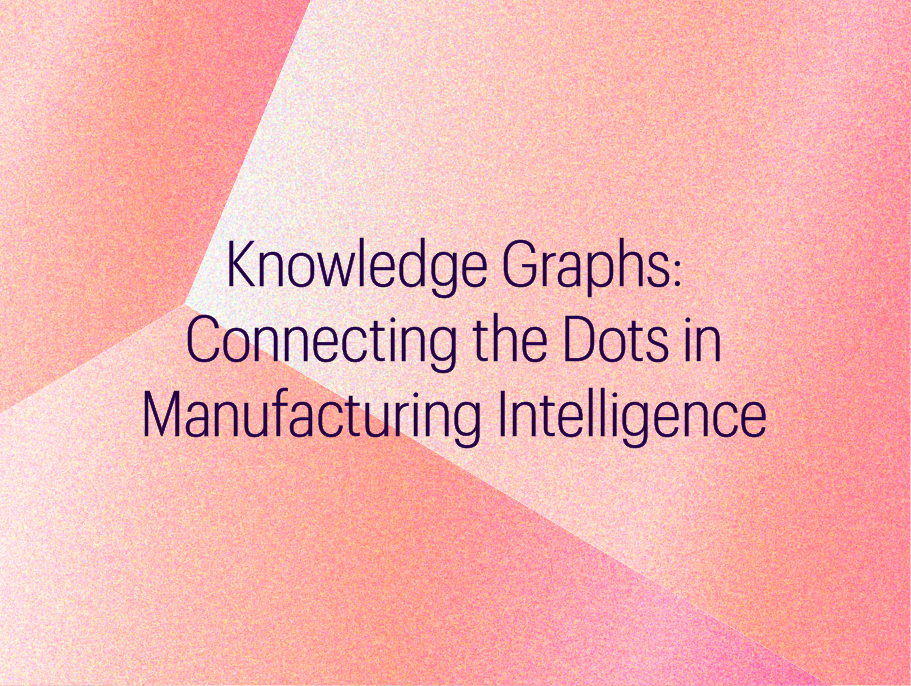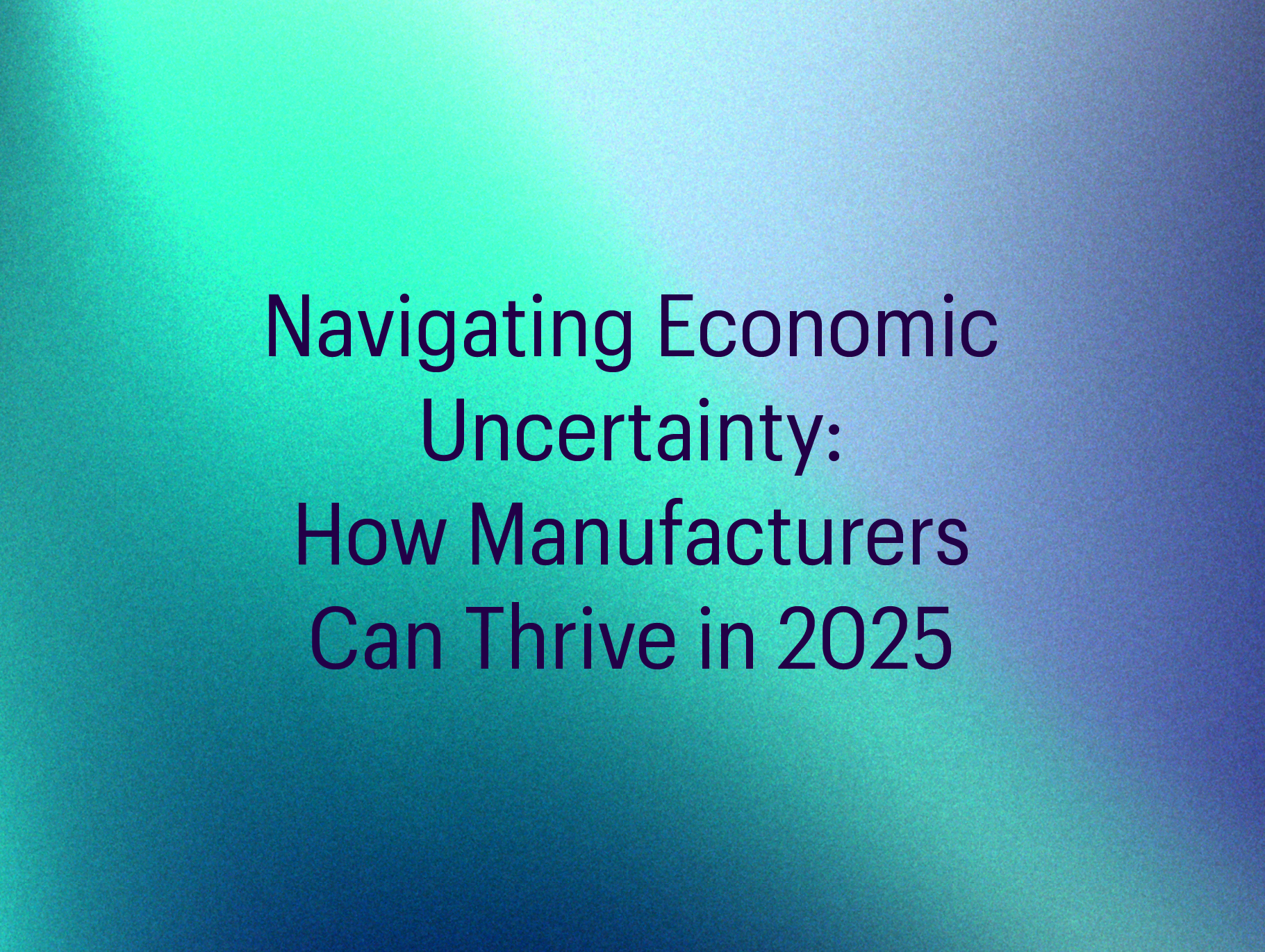Manufacturers are entering a pivotal era in digital transformation where the ability to harness institutional knowledge will separate leaders from laggards. Despite decades of investment in ERP, MES, and PLM systems, operational knowledge remains fragmented and scattered across emails, tribal conversations, siloed documents, and the minds of retiring experts.
But this is changing. By 2027, over 60% of global manufacturers are expected to deploy Agentic AI systems, not just to automate responses, but to act with purpose, to reason, and to continuously evolve knowledge across the value chain. Agentic AI works by chaining multiple decision-making and reasoning steps, using feedback loops to plan actions, execute them, and adapt based on new data. This signals a shift from passive knowledge repositories to intelligent, proactive systems that scale expertise across sites, shifts, and teams.
From Tribal Wisdom to Self-Updating Knowledge Networks
Manufacturing has long depended on tribal knowledge; the nuanced insights and heuristics developed through years of operator experience. The problem? These insights often remain undocumented, walking out the door with every retirement or job switch.
Agentic AI systems are now capturing and codifying this knowledge in near real time. These systems use autonomous agents that continuously monitor data streams, apply reasoning algorithms, and update stored knowledge without human prompting. One key transition is the move from static SOPs and outdated wikis to living knowledge systems that automatically evolve based on interactions happening on the shop floor, such as maintenance logs, shift handovers, or design reviews.
In one instance, a beverage manufacturer was facing significant losses due to production inefficiencies and turned to an AI-powered scheduling system to tackle the reliance on undocumented local knowledge. Instead of creating more manuals, MathCo enabled the system to learn from operational patterns, dynamically optimizing schedules and dramatically reducing waste. The outcome? A 40% drop in missed orders and over 24,000 hours saved annually, demonstrating how autonomous knowledge refinement drives real impact.
Natural Language Search Will Replace Keyword Systems
Legacy portals and document libraries are becoming increasingly obsolete. When frontline workers cannot find critical information quickly, operations stall. Traditional keyword-based search is no match for the nuance of real-world manufacturing challenges.
By 2026, natural language search powered by Agentic AI will become the standard across industrial knowledge systems. It works by combining large language models with reasoning agents that interpret intent, search across multiple structured and unstructured sources, and synthesize a context-aware answer. These intelligent systems will:
- Understand context-rich queries like “Why does Line 4 frequently jam during third shift?”
- Summarize complex technical documents into role-specific takeaways
- Recommend next-best actions based on past resolutions
- Tailor responses to a maintenance engineer vs. a plant manager
The result is not just faster answers, but fewer repeat errors, improved first-time fix rates, and accelerated decision-making. It is a clear signal that AI is no longer a backend tool; it is becoming a trusted co-pilot on the factory floor.
Expertise Will Be Dynamically Mapped, Not Manually Logged
Traditional organization charts and skills databases capture a moment in time. But in modern factories, where roles shift and teams collaborate fluidly across geographies, expertise must be inferred in real-time.
Agentic AI systems can now build dynamic expertise graphs by analyzing actual work contributions, documents authored, issues resolved, and conversations led. It achieves this by using graph-based machine learning models that map relationships between people, skills, and problems in real time. These self-evolving maps connect employees based on knowledge domains, not job titles.
For example, an electrification software company operating globally faced challenges due to decentralized workforce planning and insufficient visibility into skill sets across regions. This lack of cohesion led to inefficient resource allocation and limited agility in responding to evolving project requirements. With MathCo, they deployed a predictive intelligence solution that automated knowledge capture and provided a unified view of workforce capabilities. With this approach, they were able to reallocate over 60,000 underutilized man-hours, in-house hiring improved, and cross-functional collaboration accelerated. This was not just automation; it was intelligent optimization of how work gets done.
This kind of AI-driven expertise routing will become indispensable in the future, where every minute of downtime carries exponential cost.
Knowledge Maintenance Will Become Autonomous
Manufacturing leaders often underestimate the burden of keeping procedures and documentation current. As compliance requirements change and product configurations evolve, the risk of relying on outdated knowledge grows exponentially.
By 2028, manufacturers will implement AI-based knowledge hygiene engines, systems that not only detect when documentation is stale but recommend revisions based on real-time process data, compliance changes, or emerging best practices. This involves autonomous agents that periodically scan knowledge repositories, trigger validation workflows, and apply updates through rule-based and machine learning-driven revision engines.
Think of it as autonomous knowledge upkeep: procedures self-edit, standards self-refresh, and documents auto-tag for context-specific use cases, from training modules to troubleshooting guides.
These autonomous systems form the backbone of the modern manufacturing knowledge stack. They prevent obsolescence before it starts, ensuring that knowledge is not just captured, but continually enhanced.
From Automation to Agents: The Road to 2030
The next chapter of industrial AI is not about chatbots or text generators; it is about AI Agents. Agentic AI is designed not just to process data but to reason, decide, and act, all while continuously learning from its environment. In practice, this means using multi-agent orchestration where each agent specializes in a sub-task, data gathering, reasoning, simulation, or action, and collaborates to reach optimal outcomes.
By 2030, manufacturing systems will be infused with agentic capabilities that enable:
- Continuous learning from operator feedback
- Real-time simulation of outcomes based on multivariate data
- Adaptive optimization of workflows, staffing, and scheduling
- Human-machine co-decisioning at every layer of operation
Organizations that embrace this shift will no longer be reactive; they will be cognitively proactive. They will not just “know what happened,” they will anticipate what’s next and act accordingly.
What Manufacturing Leaders Should Do Now
Leading in the AI-native future demands sharp priorities and unified, strategic actions:
- Plan for an Integrated AI solution: Team expertise and AI-driven insight must operate as one system, amplifying decision-making, accelerating problem-solving, and redefining operational excellence.
- Transform institutional knowledge into an actionable asset: Decades of expertise remain fragmented which hinders faster decision making. Knowledge is scattered across spreadsheets, hidden in inboxes, or confined within smaller teams. In an AI-native enterprise, this knowledge is not only preserved but also structured, enhanced, and applied as a lasting competitive advantage.
- Build governance for evolving systems: AI systems are only as strong as the data that drives them. Approach data governance with the same rigor as quality control, ensuring every model is powered by accurate, contextual, and reliable information. Rather than a one-time task, governance is an evolving framework.
Empowering Intelligence at the Core of Manufacturing
At MathCo, we partner with leading manufacturers to build agentic AI platforms that do more than just store knowledge; they activate it. By integrating intelligence into daily operations, we help businesses improve efficiencies and elevate decision-making at every level.
From dynamic scheduling optimization and predictive maintenance to intelligent resource planning, our solutions go beyond automation. They simulate, adapt, and learn, turning data into self-managing knowledge that powers continuous improvement.
The future of manufacturing is not about managing knowledge; it is about making it self-managing. With MathCo, manufacturers do not just keep up with change; they lead it.


